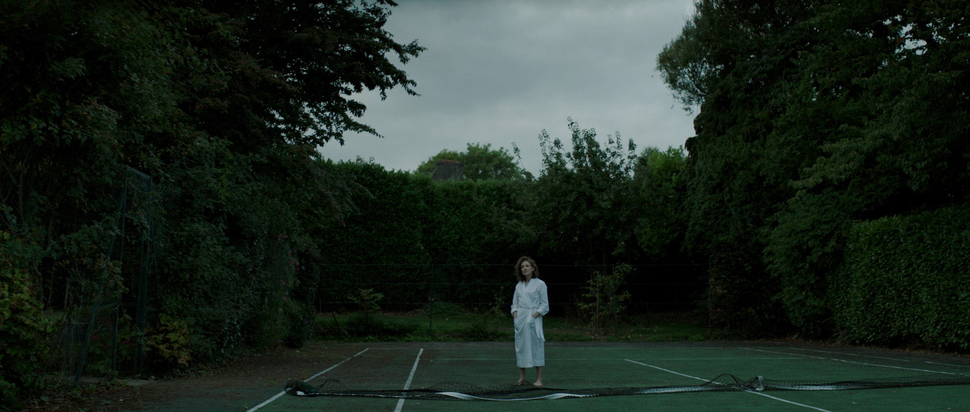Christine Molloy and Joe Lawlor on Rose Plays Julie
Irish filmmakers Christine Molloy and Joe Lawlor speak to us about their slippery new thriller Rose Plays Julie
“Who are you?” Those are the words we see scrawled on a Post-it Note towards the end of Rose Plays Julie, and it’s a question that goes to the heart of Christine Molloy and Joe Lawlor’s work. Since making their feature debut with Helen in 2008, this filmmaking team has explored the slippery nature of identity and the way past traumas can shape our present lives, and Rose Plays Julie is their most potent examination of these themes yet. This quietly riveting film follows a young Irish woman named Rose (Ann Skelly) who adopts a new persona as she tracks down her birth mother, Ellen (Orla Brady), and subsequently discovers the shocking truth about the circumstances of her conception.
Rose’s quest is a queasily compelling one to follow, as she makes a series of bold and naïve choices that push her into dangerous situations with the deceptively affable Peter (Aidan Gillen). The film seems to be following a thriller template, but it keeps subverting our expectations and it emerges as a more thoughtful and ambiguous piece of work that blurs genre conventions.
“I wouldn't say that it was driven by a desire to write a revenge thriller or drama,” Molloy tells me over Zoom from the couple’s home in London. “If I think of revenge, I think of somebody deliberately setting out on a path. They have an end in mind, and they're going to try and achieve that end, which might be to kill somebody or to teach them a lesson or whatever. In Rose Plays Julie, her initial journey was to try and find her birth mother, which is about finding answers to who you are. Somewhere along the way it shifts gear, but I think it was never really driven by a quest for revenge. I think it was much more on our mind as we were writing the script that it's a love story between the mother and daughter, an unusual love story.”
“I think in the process of writing, you're not necessarily always clear about what the ending is,” Lawlor adds. “Sometimes you find yourself thinking, 'Oh, this is the direction the story is going in,' and you're not necessarily controlling its direction, but it's sort of controlling you. Before you know it, something terrible is happening towards the end of the film, and you're surprised by it.”
Something terrible has also occurred long before we meet these characters. Rose Plays Julie is a film concerned with the constant threat of male violence. It was important for Molloy and Lawlor to tell this story in a way that respects the integrity of their female protagonists, and to avoid the kind of lurid and exploitative approach that we’ve seen too often before.
“For me and for Joe, cinema is full of dead female bodies,” Molloy says. “They die in all kinds of ways. I mean, I know that cinema is also full of dead male bodies – you look at westerns and war films – but they're often heroic and full of machismo and courage, whereas women are dismantled and destroyed. If nothing else, we were not going to have a woman dying in our film in a brutal and violent way, and for that to be the reveal or the other twist in the narrative, and we also knew that we wouldn't have rape depicted on screen because cinema's also full of rape. Not in Rose Plays Julie, anyway. I'm just not interested.”
When Rose Plays Julie had its world premiere at the London Film Festival in 2019, it looked primed to provoke debate at a time when sexual abuse by men in positions of power was rarely far from the headlines. “I kind of thought it had found its place when we showed it in London,” Molloy says. “We had been working on the project for quite a few years, so it certainly wasn't a response to the Me Too movement, and yet it felt that it was somewhere in that conversation.”
Almost two years on, however, the film feels even more keyed into the times in which we're living. We are conducting this interview two weeks after a landmark case in which a man was convicted of a decades-old rape that conceived a child, and days after a young man consumed by misogyny killed five people in Plymouth. These are just two of the recent news stories that cast a shadow over our conversation. “After what happened in Plymouth at the weekend and now what's happening in Afghanistan, the price that women are going to have to pay, it feels like the film is finding a different kind of place that's probably even more relevant,” Molloy says. “I mean, it's ongoing, it's perennial. It doesn't go away, obviously, but it kind of comes into our sightlines every so often in a more forceful way.”
Rose Plays Julie is released 17 Sep by New Wave
